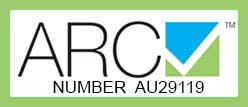Gas ducted heating, a popular and efficient method of warming homes, is a topic of increasing interest as homeowners seek to balance comfort, cost, and environmental impact. This heating system, which uses natural gas to produce warm air that is then distributed throughout the home via a network of ducts, offers a range of benefits that make it an attractive choice for many.
However, like any home heating solution, it’s not without its complexities. From understanding how the system works to navigating the installation process and ongoing maintenance, homeowners need to be well-informed to make the best decisions. This article aims to provide a comprehensive guide to gas ducted heating, exploring its benefits, how it compares to other heating options, and addressing common questions and concerns.
Whether you’re considering installing a gas ducted heating system in your home or simply want to understand more about this heating method, this article will provide the information you need. We’ll delve into the technical aspects, discuss environmental considerations, and provide practical advice, all with the aim of helping you make an informed decision about gas ducted heating.
What is Gas Ducted Heating?
Gas ducted heating, also known as central heating, is a system designed to warm an entire house or building. It operates by burning natural gas to produce heat, which is then distributed throughout the property via a network of ducts and vents. This system is highly efficient, providing consistent and comfortable warmth in all rooms connected to the system.

The core components of a gas ducted heating system include a central heating unit, ductwork, and vents. The central heating unit, often located outside the house or in the roof space, is where the natural gas is burned to generate heat. This heat is then transferred to air drawn from inside or outside the house, depending on the system configuration.
The heated air is then pushed through the ductwork, which is a network of insulated pipes that run from the heating unit to various points in the house. The ductwork is typically installed in the roof or under the floor, keeping it out of sight while ensuring efficient heat distribution.
The vents, also known as registers or outlets, are the points at which the warm air enters each room. They are strategically placed for optimal heat distribution, often located on the floor or ceiling. The number and location of vents can usually be customised to suit the specific layout and heating needs of the house.
One of the key advantages of gas ducted heating is that it allows for zoned heating. This means you can control which areas of the house are heated at any given time, providing flexibility and helping to save energy.
Understanding the workings of a gas ducted heating system is the first step in appreciating its benefits and potential. As we delve deeper into this topic, we’ll explore the advantages of this system in more detail, compare it with other heating options, and address common questions and concerns.
Benefits of Gas Ducted Heating
Gas ducted heating offers a multitude of benefits that make it a popular choice for homeowners. One of the most significant advantages is its energy efficiency. Natural gas, the fuel used in these systems, is a highly efficient source of energy. It burns cleanly and produces a substantial amount of heat relative to its cost, making gas ducted heating a cost-effective option, particularly in areas where natural gas is readily available.
Another key benefit of gas ducted heating is its ability to provide rapid, consistent heating. Unlike some other heating methods, which may take time to warm up, gas ducted heating systems can quickly raise the temperature in a home, providing immediate comfort on cold days. Furthermore, because the heat is distributed through ducts to every room, it ensures a consistent temperature throughout the house, eliminating cold spots.
Gas ducted heating also has environmental benefits. Natural gas is a cleaner-burning fuel than coal or oil, producing fewer harmful emissions. This means that choosing gas ducted heating can help to reduce your home’s carbon footprint. Additionally, modern gas ducted heating systems are designed to be highly efficient, minimising energy waste and further contributing to their environmental credentials.
Comfort is another area where gas ducted heating excels. Unlike some forms of heating, which can dry out the air, leading to dry skin and eyes, gas ducted heating maintains a more natural humidity level. This can make the heated environment feel more comfortable and can be particularly beneficial for those with respiratory conditions or sensitive skin.
In summary, gas ducted heating offers a combination of energy efficiency, rapid and consistent heating, environmental benefits, and comfort. These advantages make it a compelling choice for homeowners seeking an effective and efficient way to heat their homes.
Installation and Maintenance of Gas Ducted Heating Systems
The installation of a gas ducted heating system is a significant undertaking that requires careful planning and professional execution. Several factors need to be considered, including the size and layout of the home, the number and location of vents, and the capacity of the heating unit. It’s crucial to get these elements right to ensure the system operates efficiently and provides the desired level of comfort.

The size and layout of the home will determine the complexity of the ductwork and the number of vents required. A larger home or a home with a complex layout may require more extensive ductwork and additional vents to ensure even heat distribution. The capacity of the heating unit also needs to be matched to the size of the home. A unit that’s too small may struggle to heat the home effectively, while a unit that’s too large could lead to unnecessary energy consumption.
Professional installation is essential to ensure the system is set up correctly and safely. Gas appliances must be installed by a licensed gas fitter to comply with safety regulations and to validate the manufacturer’s warranty. A professional installer will also be able to advise on the optimal configuration of the system for your specific needs.
Once installed, regular maintenance is crucial to keep a gas ducted heating system operating at its best. This typically involves annual servicing to check the condition of the heating unit, clean the components, and identify any potential issues. Regular maintenance can help to prolong the life of the system, maintain its efficiency, and prevent breakdowns.
In conclusion, while the installation of a gas ducted heating system requires an initial investment of time and money, the benefits of a well-installed and maintained system – in terms of comfort, energy efficiency, and long-term cost savings – can make it a worthwhile investment.
Future of Home Heating: Hydrogen Blended Natural Gas
As we look towards the future of home heating, one development that is garnering significant interest is the use of hydrogen blended natural gas. This innovative approach involves mixing hydrogen with natural gas to create a fuel source that can be used in existing gas infrastructure, including gas ducted heating systems.
Hydrogen is an abundant element that, when burned, produces water vapour rather than carbon dioxide. This makes it a potentially significant player in efforts to reduce greenhouse gas emissions and combat climate change. However, pure hydrogen is challenging to store and transport, which is where blending it with natural gas comes into play.
Hydrogen blended natural gas can be used in existing gas networks and appliances with minimal modifications, making it a practical and cost-effective way to introduce hydrogen into the energy mix. The proportion of hydrogen in the blend can be gradually increased over time as technology and infrastructure evolve, potentially leading to a fully hydrogen-based system in the future.
The benefits of hydrogen blended natural gas are significant. Firstly, it can reduce the carbon emissions associated with home heating, contributing to climate change mitigation efforts. Secondly, it can enhance energy security by diversifying the energy mix and reducing reliance on fossil fuels. Finally, it can potentially lead to cost savings for consumers in the long term, as the cost of renewable hydrogen is expected to decrease as production scales up.
In conclusion, hydrogen blended natural gas represents a promising development in the field of home heating. While there are still challenges to overcome, including the need for further research and development, the potential benefits of this approach make it a compelling area of focus for the future of gas ducted heating.
Comparison: Gas Ducted Heating vs. Other Heating Systems
When considering a heating solution for your home, it’s important to compare different systems to understand their respective strengths and weaknesses. In this section, we’ll compare gas ducted heating with other common heating systems, such as reverse cycle heating and electric heaters.
Firstly, let’s consider reverse cycle heating, also known as heat pumps. These systems are highly efficient and can provide both heating and cooling, making them a versatile choice. However, they tend to be most efficient in mild climates and can struggle in very cold conditions. In contrast, gas ducted heating systems perform well in all climates, providing consistent and reliable warmth even in the coldest weather.
Electric heaters, such as panel heaters or portable heaters, are another common choice. These systems are often cheaper to install than gas ducted heating and can be a good option for heating small areas or individual rooms. However, they are typically less efficient than gas ducted heating, leading to higher running costs. They also lack the ability to heat an entire home evenly, as a gas ducted system can.
In terms of environmental impact, gas ducted heating has the edge over traditional electric heaters, which often rely on electricity generated from fossil fuels. However, if the electricity is sourced from renewable energy, electric heaters can be a green choice. Reverse cycle systems are also considered environmentally friendly due to their high efficiency.
Finally, comfort is a key consideration. Gas ducted heating delivers warm air that doesn’t dry out the skin or eyes, which some people find more comfortable than the heat produced by electric heaters or heat pumps.
In conclusion, while each system has its advantages, gas ducted heating stands out for its efficiency, performance in all climates, potential for lower running costs, and comfort. As always, the best choice will depend on your specific needs and circumstances.
FAQs on Gas Ducted Heating
As with any significant home investment, it’s natural to have questions about gas ducted heating. Here, we address some of the most commonly asked questions to help you make an informed decision.
Is gas ducted heating worth it?
Gas ducted heating can be a worthwhile investment for many homeowners. It provides efficient, consistent heating throughout the home, offers potential cost savings over time, and can enhance home comfort. However, the value can depend on factors such as your local climate, the size of your home, and the availability and cost of natural gas.
What is cheaper to run, gas ducted heating or a split system?
The running costs can depend on various factors, including the efficiency of the specific models, the cost of electricity and gas, and how the systems are used. However, gas ducted heating is often cheaper to run than electric split systems, especially in areas where natural gas is readily available and affordable.
How long does a gas ducted heating system last?
With regular maintenance, a gas ducted heating system can typically last between 10 to 20 years. Regular servicing can help to prolong the lifespan and maintain the efficiency of the system.
Can gas ducted heating leak carbon monoxide?
While it’s possible for any gas appliance to leak carbon monoxide if it’s not properly maintained, modern gas ducted heating systems are designed with safety features to minimise this risk. Regular servicing by a licensed professional is crucial to ensure the safe operation of the system.
Conclusion
In conclusion, gas ducted heating presents a compelling option for home heating. Its efficiency, consistent performance, environmental benefits, and the comfort it provides make it a popular choice among homeowners. While the initial investment may be significant, the potential long-term savings and the enhancement of home comfort can make it a worthwhile endeavour. As with any major home improvement decision, it’s important to do your research and consult with professionals to ensure you’re making the best choice for your specific needs and circumstances. With the right information, you can make an informed decision about gas ducted heating.










